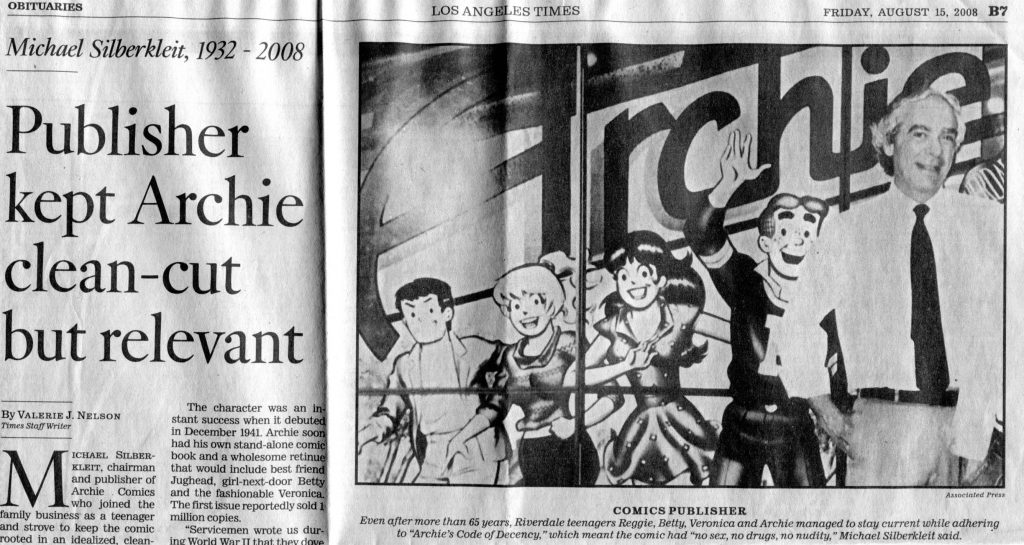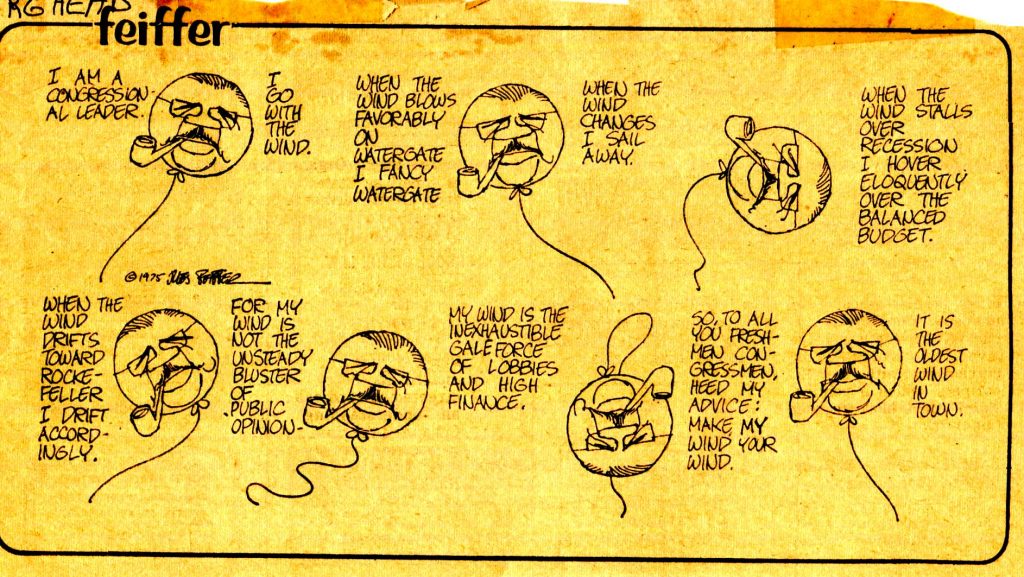“The only striking effect of having taught everyone to read and write is that the human beings of lowest intelligence
are now vocal instead of being dumb, as they were in the past.”
Aldous Huxley, “Outlook For American Culture”
Notes Toward A Definition: JARGON LINGO, JARGHEAD STAPLES, OR JINGO JANGLES
Jargheads are making so much noise these days that we here at the 3T bunker are getting a little disturbed by it. So disturbed, in fact, that we seek to comfort the jarghead and tranquilize the inner jargon. But it’s really necessary to identify the sufferer before comfort may be applied. The first major question arising from this problem— or as jargheads are fond of saying, this issue— is one of identity. After using the term for years, it finally came down to addressing the initial question: Just what is a jarghead?
Defining the term, though, brings up a more basic problem: if you are a jarghead, you won’t know by this essay; if not, it won’t really matter. Yet in the spirit of brave new lexicography, we do here at the Trying Times Archival Bar & Grill– and not without some trepidation– attempt to outline the anatomy of a jarghead. Furthermore, as an aside aimed directly at the odd jarghead who might take this on, that particular reader is likely to be irony challenged. In which case ironies, by way of courtesy, will be marked.
Since “jarghead” is a hybrid word, definition begins by explaining the mix made for the term. The first source member for jarg+head was plucked straight out of Big Brother’s home turf.
In the bad old cold war days it was amusing to hear Soviet comrades accusing each other of deviation from party line, and an official accusatory term was “phrase-maker.” A phrase-maker who wilfully created anything as sinister as personal out-of-committee references would therefore be guilty of “jargonism.” Transgressing jargonists left themselves open to execution or at least early  retirement in Siberia. What amazed then still amazes now: that a group whose ideology was founded upon manipulating mass consciousness with politically correct stringency could charge one another with making up jargon. Yet, “jargonist” was the official charge against those trafficking in demagoguery: ☞ Irony!
retirement in Siberia. What amazed then still amazes now: that a group whose ideology was founded upon manipulating mass consciousness with politically correct stringency could charge one another with making up jargon. Yet, “jargonist” was the official charge against those trafficking in demagoguery: ☞ Irony!
Mated to commie-committee jargonist is a character out of Archie comics: Jughead. The learned may recall Jughead as Archie’s dippy pal, yet he was quite the opposite.
 ☞ In order to appreciate the Jughead reading, we pause to reflect upon the nature of a head functioning as a jug— a vessel to be refilled regularly with jingly notions and jangly concepts in order to muffle the hollow echo when emptiness speaks. In short, a jarghead is a jughead filled with jargon that empties when the mouth is uncorked. :☞ Irony!
☞ In order to appreciate the Jughead reading, we pause to reflect upon the nature of a head functioning as a jug— a vessel to be refilled regularly with jingly notions and jangly concepts in order to muffle the hollow echo when emptiness speaks. In short, a jarghead is a jughead filled with jargon that empties when the mouth is uncorked. :☞ Irony!
Jughead’s sole interest is to devour hamburgers and maintain a sloppy hippy individuality; that is, the conforming non-conformist conforming to fashionable free thought. Archie, by contrast, is pure bourgeois, faking out blonde pony-tailed Betty while competing with Reggie for the attention of icy dark-haired vamp, Veronica. Archie is sparked by standard educational values, standard jargon— as all students are in Archie’s world. Education is based on imitation, though much of it jargon. True education should actually guide past the jargon.
 At one time, the most commonly read book was one titled Common Sense. Think how it counts now as a victory in the current atmosphere that each citizen be allowed to abandon common sense and embrace the jargon of hirs (his or her) own choice. It marks the short distance between top-down fascism and bottom-up fashionism, wherein Everyperson is granted the right to coin hirs jargon according to hirs own peculiar view of correctness.
At one time, the most commonly read book was one titled Common Sense. Think how it counts now as a victory in the current atmosphere that each citizen be allowed to abandon common sense and embrace the jargon of hirs (his or her) own choice. It marks the short distance between top-down fascism and bottom-up fashionism, wherein Everyperson is granted the right to coin hirs jargon according to hirs own peculiar view of correctness.
Jughead is one of his breed to reject out of hand that campy bag of tribal tricks revered by the middle class. Not like Archie, who conforms to the manner of the tribe. Archie would make a better child of the Australian Aranda tribe in that he too would be duly intrigued by the customs of his elders. As a good prepubescent Arandan, young Archie would be mystified by the bullroarers. These would be the strange sounds emitted in the dark beyond the campfire during secret night-time rituals. He would be told that the constant whooshing sound was made by earth spirits. Unenlightened women and children go on to perceive that strange sound as a source of great wonder. But when the adolescent male Archie is finally initiated into the circle of grown men, he learns that it was only a windy rush caused by tribal elders spinning and twirling flat pieces of wood called “bullroarers.” The wood is inscribed with sacred symbols, but a piece of wood nevertheless, one that goes whoosh in the night. With this new enlightenment, the mature Archie perceives that the mysterious communal sound as just so much bullroaring. ☞ Irony!

The moral is fairly clear: if you go through the expected steps to maturity you may learn to see through (hear past) the bullroarers. Jughead, on the other hand, will automatically pursue his rigid nonconformity and defy the bullroarers until he overdoses: ☞ Irony!
Indubitably, there resides a measure of whimsy in this lexicology, but word work is not always dismal. It certainly requires ratcheting up the absurd when describing language of the absurd. It takes a dash of humor to identify verbal signals between robotic imitators desperately seeking change for change’s sake. Make no mistake, change is good. Nature insists upon it. Evolution demands it. But forced and funky change foisted upon jargheads is not a reward of nature at work. What is at work in jargon worship is a propensity to subvert fundamental biological advantages— an imaginative flexible brain, superior prowess in protecting offspring, and written abstract thinking– and turn it all into a joke, if not a tragedy. ☞ Irony!
Such is our purpose: to determine the way jargon affects trendoid behavior, especially since it happens to be an intrinsic part of our collective square dance, the rhythm of doh see doh tempo accelerated to breakneck speed with words flying off in all direction. But even more relevant is the ease in which jargoneer and jargonette are willing to surrender past lifestyles which had reigned in their own time as matters of rabid sincerity, and all the while seeking new words to glamorize the shift.
 To authenticate the term jarghead we first consult the Webster outfit for jargon [French < giargone, zircon, a colorless valueless stone] Compare that with our definition for jughead [Dell comix = one whose head rattles with colorless valueless words] Since jargon invades much of our daily lives, it glitters everywhere. Think of the cheap glitz glowing off a slogan as dull and cheap as “Hope and Change.”
To authenticate the term jarghead we first consult the Webster outfit for jargon [French < giargone, zircon, a colorless valueless stone] Compare that with our definition for jughead [Dell comix = one whose head rattles with colorless valueless words] Since jargon invades much of our daily lives, it glitters everywhere. Think of the cheap glitz glowing off a slogan as dull and cheap as “Hope and Change.”
Due to an amazing flexibility, the jarghead can live just about anywhere but thrives best where there is minimal contact with harsh surfaces. No matter the landscape, no matter the weather, the jarghead survives even harsh territory by collecting for herm self, like precious fuel, select bits of pop wisdom. Like learning acceptable dance steps, these bytes are stored against a more severe vocabulary afforded by reality itself.

British writer Rupert Cornwell learned upon coming to America that one should not use “left-handed” metaphorically, “So as not to offend the sinistrals.” (The Independent, 26 March 93) He learned among the colonials that “the offensive nature of ‘right’ and ‘wrong’ are much too morally loaded for everyday consumption. Far better the numbingly neutral mind-mush of ‘appropriate’ and ‘inappropriate.’”
This mental padding of euphemism is named after an Elizabethan character Euphues who expressed himself in a “high style” in order to make the worst sound better. Euphues seems to have been consulted in Louisville, Kentucky, at a radioactive and chemical waste disposal company. The operation changed its name in 1981to U.S. Ecology, Inc. “because the firm wanted to change its name designating radioactive chemical waste to one that would make people feel comfortable.” (William Lutz, Doublespeak, p108) There’s that “ecology,” a word that massages your anxiety like his brother, “environment.”
Euphemism is a rhetorical device invented to glorify fancy flourishes of language, like describing fish as “finny tribes.” It now seems more of a device borne out as a shield on the part of chicken- livered people against the concrete language describing the world in a harsher yet realistic light. Poet Leonard Nathan plumbed the difference between the concrete and the euphemistic in describing a relationship gone bad:
What love might be? You find improper names:
A Saxon shock, a Latin emptiness.
Playing with euphemism, these lines end a poem describing the effects of a despairing “Affair,” which is its title. The final line takes into account the shock of the words “fuck” and the emptiness of “intercourse,” and all by innuendo.: ☞ Irony! The Latinate “intercourse” is of course more socially acceptable to the moral ear than the blunt Saxon derivative.

In fact, the Saxon F.U.C.K. heralded (if that’s the word) the Berkeley “free speech movement” in the early 60s. Born on the University of California campus, Jughead and his new radical pals formed The Movement, which built a scaffold for protests eternal. So one could say that the cry of protest was prefaced by the single word fuck. (☞ Irony!) And if that sounds frivolous, bear in mind that a few years later a feminist movement took off with orgasm as the major plank in its political platform, while clitoris was added to everyday vocabulary. Up until then, folks preferred the public utterance of Latin emptiness, like intercourse.
As with the lady who preferred the Latin glut words “appropriate” and “inappropriate” to “right” and “wrong,” so do linguists. One English teacher colleague preferred the Latin emptiness of “high-proficiency speaker” to the more direct “native speaker.” Seems rather odd that, in an age exhibiting an almost fetish fascination for “ethnocentricity,” the word “native” should be suspect, especially when used in the harmless context of a speaker of a certain language.
Why not call a spade a spade? Well, you can’t, really. Especially if you serve in the U.S. Army. In that institution, a “spade” wants to be called an “entrenching tool.”
 Harsh terminology can be painfully direct, so the jarghead, being the avoidance type, insists on an environment extremely euphemistic in nature. In fact, we may use as examples of how jargon pads the mind by those same two terms: environment and nature.
Harsh terminology can be painfully direct, so the jarghead, being the avoidance type, insists on an environment extremely euphemistic in nature. In fact, we may use as examples of how jargon pads the mind by those same two terms: environment and nature.
“Environment” is little more than an empty Latin agglutination of syllables merely serving to rattle the palate, whereas “nature” is rather more precise in what it designates. If the reader has problems with nature, he should have his soul examined, or at least refer to poems written before Early Deconstruction. Unfortunately, the actual phenomena of nature— the great commotion opera of the biosphere, the rind of Earth where all made things come from— has been so “minimalized” one could easily suspect a lurking conspiracy to abandon the word altogether. Jargheads replace nature with a moniker that has less to do with birds and bees, and more to do with twittering and buzzing buzz words found among the insectified. Thus, environment in pop jargon equals nature. ☞ Irony!
 Swapping environment straight across for nature is only a good deal for inflating high-sounding syllables, but it’s a bad bargain for common usage since it swiftly departs from direct perception. Environment can mean anything from a shopping mall to a blood cell, depending on whether you are a consumer or a virus. Further, if language is truly an expression of popular will, then it is disturbing to imagine what Disneyland future is in store by actually eradicating the term nature. It takes a large step toward disarming awareness of what were known as the “eternal verities.” And the birds and bees are actually diminishing. Before the collective approval of eradicating them altogether, as well as denying human connection with them, we must first euphemize or deconstruct the word defining their world.
Swapping environment straight across for nature is only a good deal for inflating high-sounding syllables, but it’s a bad bargain for common usage since it swiftly departs from direct perception. Environment can mean anything from a shopping mall to a blood cell, depending on whether you are a consumer or a virus. Further, if language is truly an expression of popular will, then it is disturbing to imagine what Disneyland future is in store by actually eradicating the term nature. It takes a large step toward disarming awareness of what were known as the “eternal verities.” And the birds and bees are actually diminishing. Before the collective approval of eradicating them altogether, as well as denying human connection with them, we must first euphemize or deconstruct the word defining their world.
Anticipating an argument that mere words trivialize is really no argument at all, let’s bear in mind that language is the system underlying all other systems. Swapping the precise and meaningful for the goofy results in just that— goofy. The swap of environment for nature only begins to recognize the soggy vocabulary engorging the dictionary for the politically correct like a sack of fresh green manure: words made up for sleazy reasons, straight forward concepts blurred by goofy syllables to insulate the fearful, ones who cannot believe the world is as harsh as the meanies say it is. In this land of euphemism fat people can only be known as carbohydrate challenged, short people as height challenged, and morons…. Well, they say morons are developmentally challenged, but we’re working on a better name for them right here. ☞ Irony!
 So we might just ask our jarghead friends to emulate busy bees and buzz us up a metaphor. For it’s this verbal buzzing that enunciates a most telling aspect in jarghead anatomy. The target-subject (to borrow a piece of educationist jargon) is most easily recognized by a hollow cranium that resonates like a tuning fork to one particular syllable: Ism. With the regular rhythm of a sacred mantra, the buzz of an Ism is emitted whenever the vocal cavern of the jarghead is opened. And on the back of that winged buzz is meant to convey a raft of complexities, a congeries of judgments, invocations of revered names, circuses of concepts.
So we might just ask our jarghead friends to emulate busy bees and buzz us up a metaphor. For it’s this verbal buzzing that enunciates a most telling aspect in jarghead anatomy. The target-subject (to borrow a piece of educationist jargon) is most easily recognized by a hollow cranium that resonates like a tuning fork to one particular syllable: Ism. With the regular rhythm of a sacred mantra, the buzz of an Ism is emitted whenever the vocal cavern of the jarghead is opened. And on the back of that winged buzz is meant to convey a raft of complexities, a congeries of judgments, invocations of revered names, circuses of concepts.
Focusing on the sacred syllable for a moment, isolating it, we can easily see how Ism contradicts the primary purpose of education. One philosopher (might have been Pascal) cogently defined education as teaching the ability to make distinctions. The tradition goes back to Socrates asking for the greater or lesser part, and also how Democritus opined the existence of atomic structure without the aid of an electron microscope. Education used to afford an ability to discern between real sounds and the bullrushers. Only now, education seems to represent a gob of isms wherein broken up concepts, undigested thoughts, suspicions, itches and scratches of ideas are lumped into one slag-heap melt-down suffix syllable so dear to a jarghhead: Ism.
As examples: sexism and male chauvinism were prime in their day and have become actualized. Some of the first in our era when the Webster gang was seriously coopted into defining…well, our era. The Webster mob fulfills its role as official bullroarers of society. so all have to get hip. They say what goes, lingo-wise.
Sexism, says Webster, is “the economic exploitation and social domination of… women by men [sex + (rac)ism].” This is not so much definition as it is clear desperation, seeing Webster’s crude bullroaring attempt at accommodating common usage. Certainly the work of making a dictionary is to decide what word is common enough to be included, but verbal gangsters today work it like sewer maintenance. They apply a wide-mouthed drain approach to language definition by collecting any gutter utterance as official guttural vocabulary.
Since it has little meaning in itself, the word sexist offers a prime example of the desperate methods employed. Root and suffix really signify nothing more than someone who practices sex. But notice how that rascally Webster had to slip in parenthetically “(rac)ism” [italics added] to lend the whole thing a note of authenticity. Even then, we are logically challenged to see the relationship per se between race and sex, except that perhaps both sex and race require the participation of members. ☞ Irony!
Such are the contortions required to convert jingo— abracadabra— into lingo. Exhibiting even greater desperation in fashioning neo-logo loonie language is the term “male chauvinism,” which conjures up a neologism with jism. Male chauvinism begs the linguistic question: What country are we in when we speak of this type of zealous devotion?
Again, sly ol’ Webster has garbled the definition of chauvinist. The original (and still the only valid) definition recalls a French xenophobe named Chauvin so detestably zealous about his country that chauvinistes were later identified with similar nationalistic bigotry. Sketchier origins of the word describe how the fanatical followers of Pepin le Chauve (Pepin the Bald) emulated their leader so ferociously that they shaved their heads as a sign of steadfast loyalty. Thus, when the male member is inserted into chauvinism— abracadabra— it then suggests a zealous man’s unreasoning devotion to the country of his cock: ☞ Irony!
 Is male chauvinism more membership? Are we in Henry Miller’s Cokayne, a place he called the “Land of Fuck?” A country where chauvinistic males pledge fierce allegiance to their members? Or is everything about it all fucked up? And if there were female chauvinists, would they sing for God and cunt? ☞ Irony! One thing is clear: coiners and users of such soggy phraseology sacrifice meaning for the hiss of an Ism? And they are folks who do practice hissing. ☞ Irony!
Is male chauvinism more membership? Are we in Henry Miller’s Cokayne, a place he called the “Land of Fuck?” A country where chauvinistic males pledge fierce allegiance to their members? Or is everything about it all fucked up? And if there were female chauvinists, would they sing for God and cunt? ☞ Irony! One thing is clear: coiners and users of such soggy phraseology sacrifice meaning for the hiss of an Ism? And they are folks who do practice hissing. ☞ Irony!
Jargon is a jarghead staple. By their twisted words ye shall know them, and they are indicated as well by robotic mentality. Language is the system underlying all other systems, so speech underlies the thought process in every endeavor, and some rolling words gather a lot of dross. Blathering politicos, for example, whose utterances echo minds cranking along automatically were the ones George Orwell was thinking of when he described the phenomenon in “Politics And The English Language”: Words…
like cavalry horses answering the bugle, group themselves automatically into the familiar dreary pattern. This invasion of one’s mind by ready-made phrases (lay the foundations, achieve a radical transformation) can only be prevented if one is constantly on guard against them, and every such phrase anaesthetizes a portion of one’s brain.
An American relation to Orwell, Richard Mitchell, mined the academic world for the same numb  brain effect. The following passage out of Mitchell’s amusing examination of language disorder The Leaning Tower of Babel is extracted from a memo written by a school administrator. “Educationists” loom large in Mitchell’s book and provide a rich compost of typically mangled language. This written proposal from a school principal is
brain effect. The following passage out of Mitchell’s amusing examination of language disorder The Leaning Tower of Babel is extracted from a memo written by a school administrator. “Educationists” loom large in Mitchell’s book and provide a rich compost of typically mangled language. This written proposal from a school principal is
...characterized by frequent errors in grammar and punctuation, but, much worse, by mind-twisting absurdities born of twisted syntax, and can only be a ritual recitation of unexamined jargon. The proposal, which awards the distinction of being “new” and “exciting,” and offers to “do… developmental and ecological views,” promises to do them “while concurrently focusing (although indirectly) on historical influences which impact differentially the contextual experiences of minority group children who live in a majority group culture.” (“The Reformation of Conceptualization,” p 213)
This particular passage was selected from a plethora bullroaring examples because it disintegrates so exquisitely in meaning quite literally at the point of impact. ☞ Irony!
Another soldier on the field of babble, William Lutz, actually titled his own compilation of mangled language Doublespeak in homage to Orwell. Lutz measures, among other things, degrees of seriousness in gobbledygook. Cab drivers defined as “urban transportation specialists,” elevator operators as members of the “vertical transportation corps,” and automobile mechanics as “automotive internists”— jargon which could be considered humorous and relatively harmless. 
“However, when a fire in a nuclear reactor building is reported as “rapid oxidation,” an explosion in a nuclear power plant is called an “energetic disassembly,” the illegal overthrow of a legitimate government is termed “destabilizing a government,” and lies are seen as “inoperative statements,” we hear the bullroaring of jarghead doublespeak, “avoiding responsibility and making the bad seem good, the negative appear positive, something unpleasant appear attractive.” It commits further “the most serious crime in language: saying something which seems to communicate but doesn’t.”
For jargon update, the contemporary spin on “narrative” and “transparent”stands out. Used originally for merely designating the story line in a work of fiction, narrative has become a catch-all for meaning anything from a discussion, idea, statement, platform, or spouting, following the formula that inflation of syllables sounds really learned. But the amusing part of this mind muddle is that some actual works of fictive narration come closer to the truth than what is presented today as a “narrative.” Of racism, for example, classic works like Uncle Tom’s Cabin and Huckleberry Finn come closer to the truth on that subject than most of the commentary, or “narratives,” viewed through the Cyclops warp of television. ☞ Irony!
And how about “transparent” subbing for “honest” or “truthful.” The joke in trading “transparent” for “honest” or “forthright” is that when someone is being dishonest, it’s easier to see right through them. ☞ Irony! Examples are thicker than flies on excrement. Shape-shifter Adam Schiff, who weeps over the threat to the Constitution as he plots outside its boundaries. ☞ Irony! Barack Obama, who solemnly swears an oath to support that same Constitution as he pledges to fundamentally change it. ☞ Irony! Open season on the Constitution? How transparent is that?
So the need for Orwell’s bullroaring detection service goes on. Empty words still line up in formation like dumb animals on horses. But there’s just one personal quibble with Orwell’s analogy. Metaphorically lining up words like uniformed horse soldiers seems too sophisticated, too formal. Jargon words are more in line with aged chorus girls kicking up tired heels to show off their lower quarters and stimulate one more jaded thrill. In a bit of nostalgia from one of America’s greatest bullroarers, William Jefferson Clinton, a few phrases from an inaugural address yield a bevy of such jiggly syllables desperately trying to kick up their heels.
 OK, girls. Ready? Let’s go.
OK, girls. Ready? Let’s go.
The president promised voters right from the git-go A NEW VISION OF GOVERNMENT which would of course require A NEW SENSE OF RESPONSIBILITY and dang it all if that doesn’t call for (shake a leg, girls) A NEW SPIRIT OF COMMUNITY. With all this “new” stuff, does that mean he wanted to confound the principles of the founding fathers? No, no, we’re cool on that because we hear the president telling us we must STAND MIGHTY FOR PEACE AND FREEDOM in order to defend (kick ‘em higher, ladies) THE WORLD’S GREATEST DEMOCRACY. We must kick up our own tired heels and MOVE ON WITH AMERICA’S MISSION so that we may MEET THE CHALLENGE OF OUR FUTURE and (higher, higher) OUR COMMON DESTINY.”
In each case, the rhetoric (by one advertised as a “communicator”) has met its own future before it is uttered. Before they are broadcast, the words suffer the sleazy retirement of a tired chorus mouse, her stringy rhetorical thighs showing some embarrassing blue veins. ☞ Irony!
Such is our general definition of a Jarghead, with living examples included, and free of charge. And if there be objection to the act of creating self-serving terms in advancing a self-interested thesis, please remember that the Webster gang is also pretty loose, and getting looser by the day. Trying Times is only following in their footsteps. So inventing the term Jarghead for selfish purposes might merely be considered the handiwork of a verbal chauvinist. ☞ Irony!
JoCo
